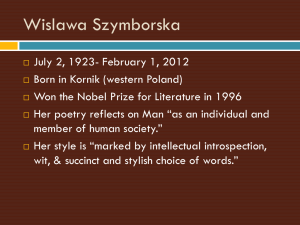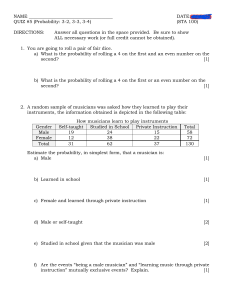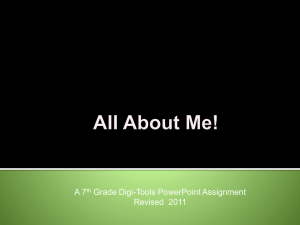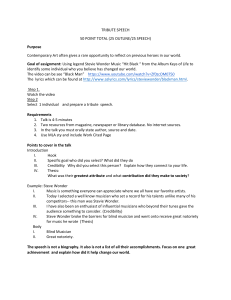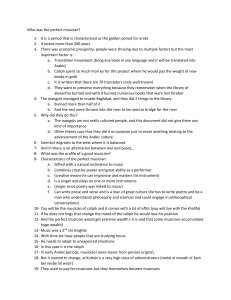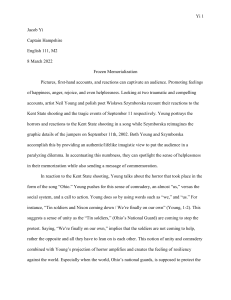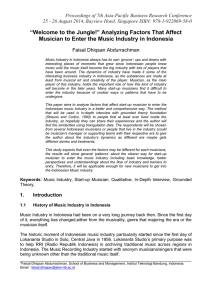Dr. Charles Rochester Young 21 Century Musician/Educator
advertisement
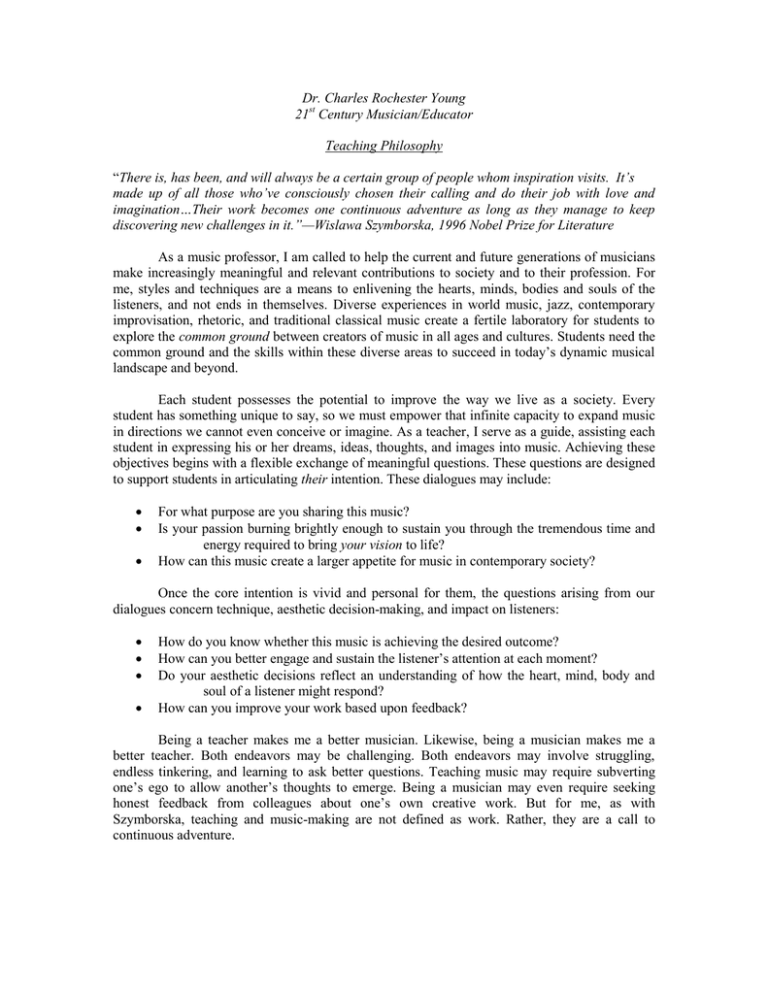
Dr. Charles Rochester Young 21st Century Musician/Educator Teaching Philosophy “There is, has been, and will always be a certain group of people whom inspiration visits. It’s made up of all those who’ve consciously chosen their calling and do their job with love and imagination…Their work becomes one continuous adventure as long as they manage to keep discovering new challenges in it.”—Wislawa Szymborska, 1996 Nobel Prize for Literature As a music professor, I am called to help the current and future generations of musicians make increasingly meaningful and relevant contributions to society and to their profession. For me, styles and techniques are a means to enlivening the hearts, minds, bodies and souls of the listeners, and not ends in themselves. Diverse experiences in world music, jazz, contemporary improvisation, rhetoric, and traditional classical music create a fertile laboratory for students to explore the common ground between creators of music in all ages and cultures. Students need the common ground and the skills within these diverse areas to succeed in today’s dynamic musical landscape and beyond. Each student possesses the potential to improve the way we live as a society. Every student has something unique to say, so we must empower that infinite capacity to expand music in directions we cannot even conceive or imagine. As a teacher, I serve as a guide, assisting each student in expressing his or her dreams, ideas, thoughts, and images into music. Achieving these objectives begins with a flexible exchange of meaningful questions. These questions are designed to support students in articulating their intention. These dialogues may include: For what purpose are you sharing this music? Is your passion burning brightly enough to sustain you through the tremendous time and energy required to bring your vision to life? How can this music create a larger appetite for music in contemporary society? Once the core intention is vivid and personal for them, the questions arising from our dialogues concern technique, aesthetic decision-making, and impact on listeners: How do you know whether this music is achieving the desired outcome? How can you better engage and sustain the listener’s attention at each moment? Do your aesthetic decisions reflect an understanding of how the heart, mind, body and soul of a listener might respond? How can you improve your work based upon feedback? Being a teacher makes me a better musician. Likewise, being a musician makes me a better teacher. Both endeavors may be challenging. Both endeavors may involve struggling, endless tinkering, and learning to ask better questions. Teaching music may require subverting one’s ego to allow another’s thoughts to emerge. Being a musician may even require seeking honest feedback from colleagues about one’s own creative work. But for me, as with Szymborska, teaching and music-making are not defined as work. Rather, they are a call to continuous adventure.
